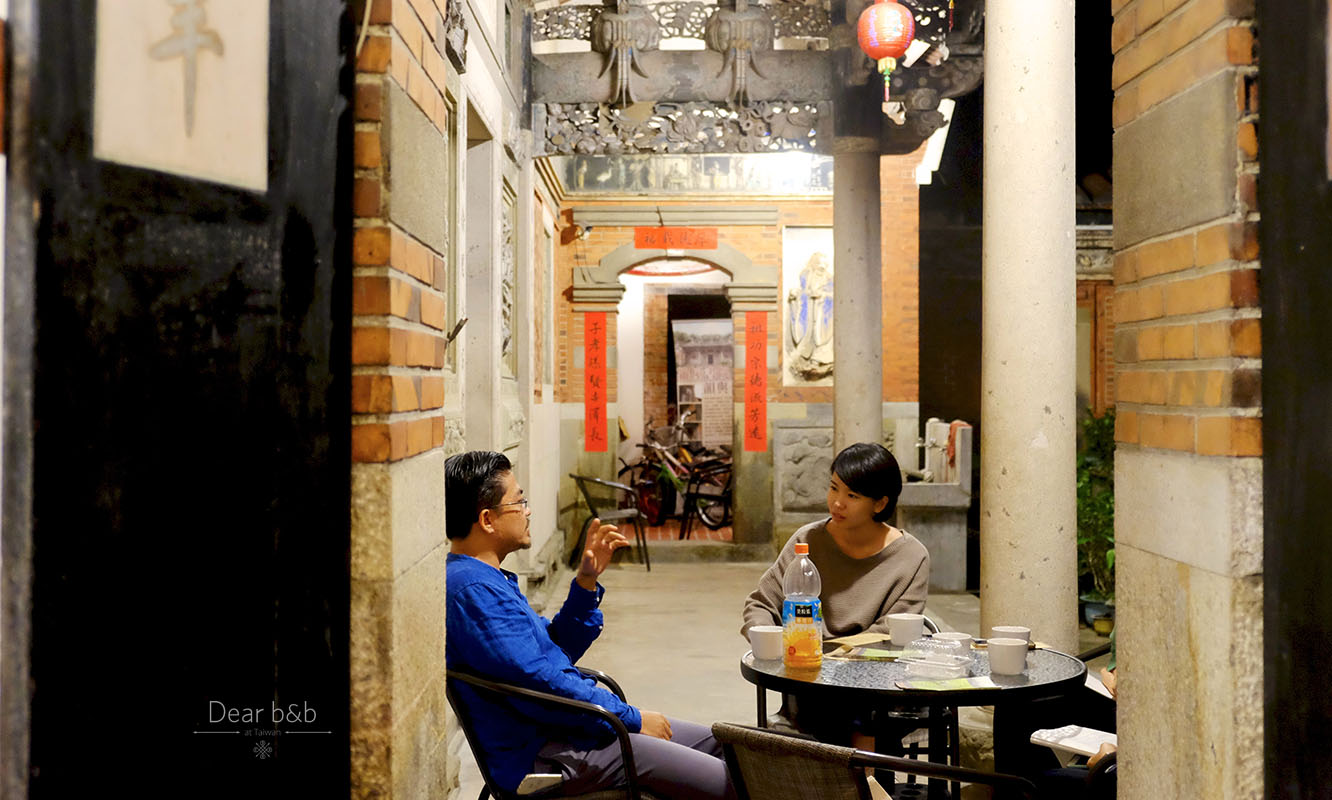 旅宿防疫模範生
旅宿防疫模範生
羅屋書院
為了讓大家在安心的環境下旅遊、正向防疫,我們推出「旅宿防疫模範生」標章,整理出以下防疫規範,為你推薦在接待服務與清潔打掃落實防疫的旅宿,讓你能安心選擇、放心出遊、下榻用心防疫的優質旅宿。
為了讓大家在安心的環境下旅遊、正向防疫,我們推出「旅宿防疫模範生」標章,整理出以下防疫規範,為你推薦在接待服務與清潔打掃落實防疫的旅宿,讓你能安心選擇、放心出遊、下榻用心防疫的優質旅宿。
Explore the Lo Family's Literary Prestige in the Hills of Guanxi
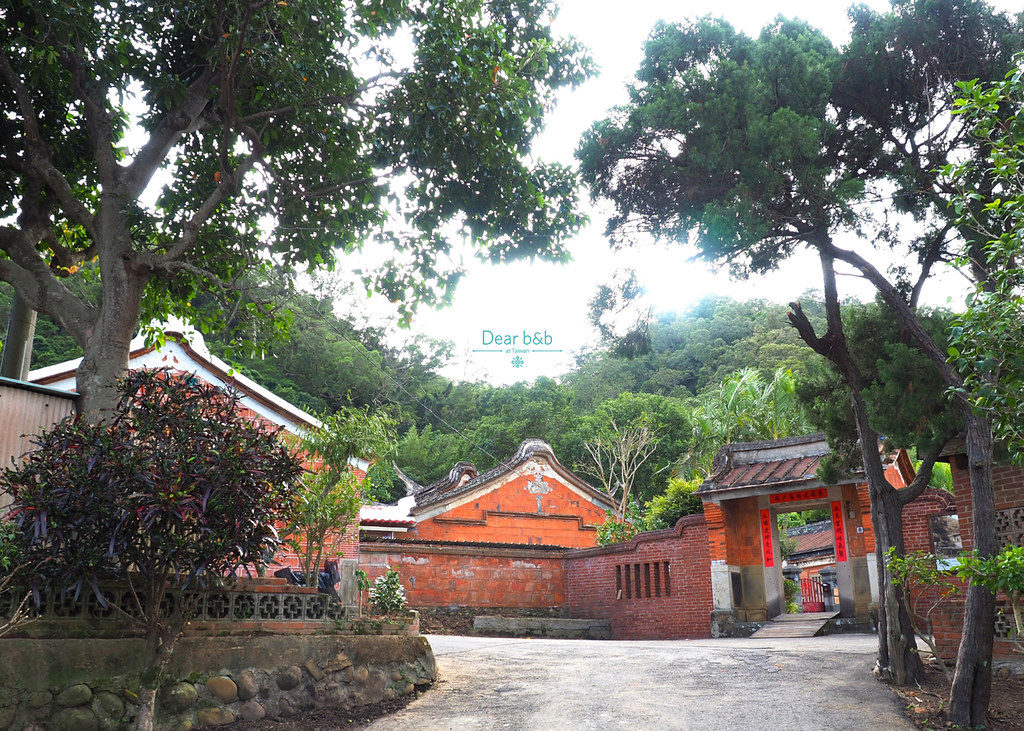
照片來源/Dear b&b、旅宿業者
(1/58)
Dear b&b Three Heartfelt Promises Certification
Safe
Sweet
Surprising
Reminders
Explore the Lo Family's Literary Prestige in the Hills of Guanxi
--
--
Features & Amenities
The lodging is currently only available in Chinese.
For other English reviews, please return to the search page; or you may close the window to enter the Chinese review.
Guanxi, Hsinchu
+54
Discover the wonder of the lodging.
You drive along Guanxi old street in the genial winter sun, while the buildings along the way paint a textured portrait of life in this small township. Eventually, you round a bend near the end of the road. Driving past the alleys that divide farmers’ fields, past the Nanshan Bridge, and circling around the babbling Fengshan River through the Nanshan hills, a cool wind gradually pierces the warm sunlight. A traditional courtyard home sits at the base of the Nanshan hills with it’s stacks of red bricks and layers of stone tiles. An elegant calligraphic couplet written above the door relates in detail a magnificent, hundred-year history, and passes on the enduring beauty of Lo House.
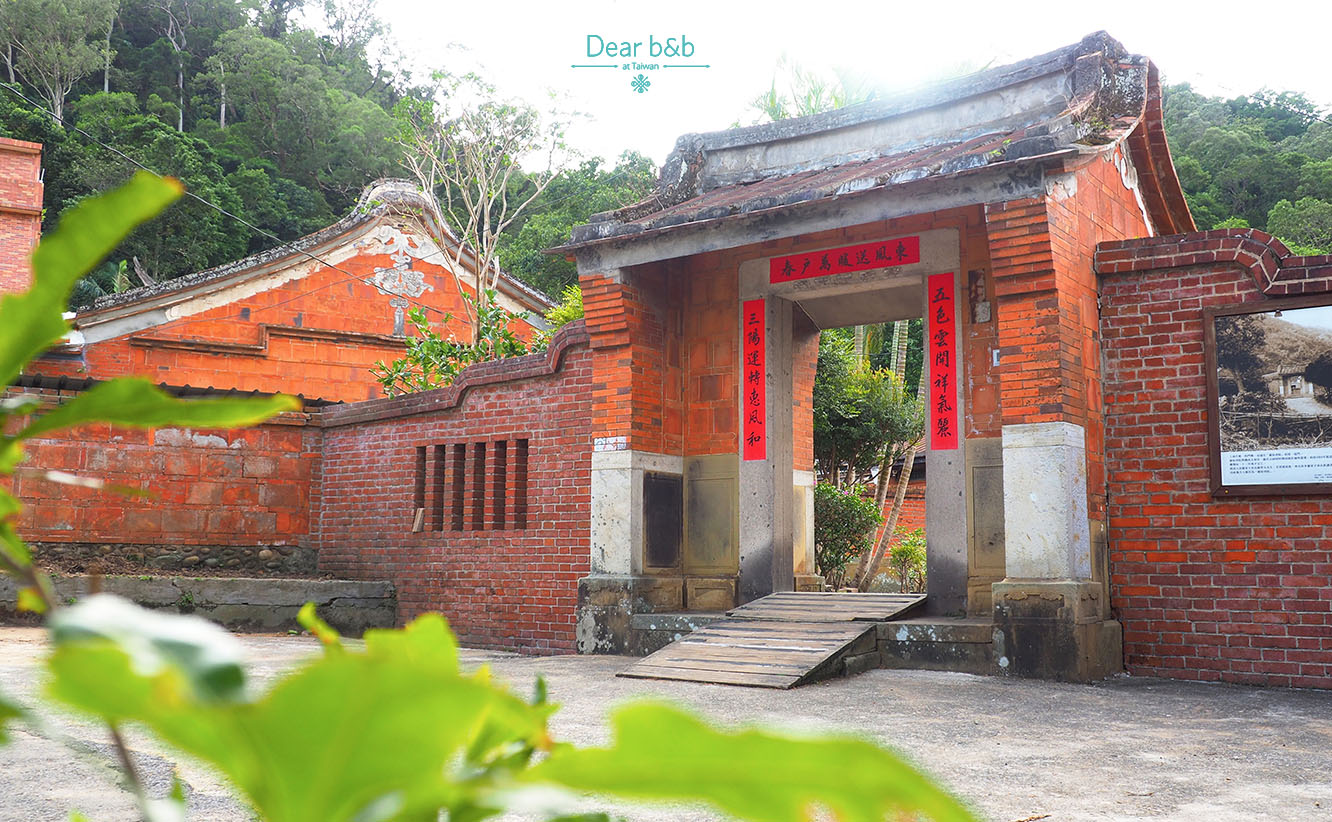
A century of intellectual tradition at Yu Zhang Hall in Guanxi’s Shangnanpian area
After entering the gate, you follow a pathway into the courtyard home where time and sunlight have faded the once-red color of the brick as well as the traces of history in the courtyard itself. The door frame is covered with rhyming couplets of verse in regular calligraphic script while carvings on the walls and window lattice quietly depict the glory of the Lo family. Along the doorway’s crossbeam hang the words “Yu Zhang Hall.” The courtyard in front of the doorway is spacious, situated along the upper reaches of Fengshan River and overlooking the pastoral landscape of Nanpian. This is Lo House, a traditional Hakkanese building which has inherited over a century of history. Built in Guanxi by the Lo family settlement beside their original residence and nicknamed “the new building under the big tree beside the river,” this building would later become the private school where the children of the Lo family would receive their schooling. Hence it eventually took the honorific name “Lo House Academy.”
The owner of the house, Mr. Lo, would return to this place every summer since he was small. He shares stories of how, nearly a century ago, it took 12 years to complete construction. The inner wall was built of thick mud bricks as well as slender bricks stacked to create a cavity wall, while the outer wall was constructed from both stones and bricks. The richly ornamented beams and pillars exhibit the Hakkanese focus on study and schooling. Stone carvings of the recruitment of the four sages narrate a deeply ingrained respect for the wise, while the joints of stone-carved bamboo in the windows are a metaphor for gentlemanly virtue. The meticulously carved Chinese unicorn, peony, and phoenix on the window compose the Portrait of Three Kings, which stands for luck and wealth. On the walls to either side are carved the story of the Old Man of the South Pole praying for longevity with the peaches of immortality, as well as the story of Liu Hai Sporting with the Toad to attract riches. Both these stories imply the profound blessings of familial prosperity.
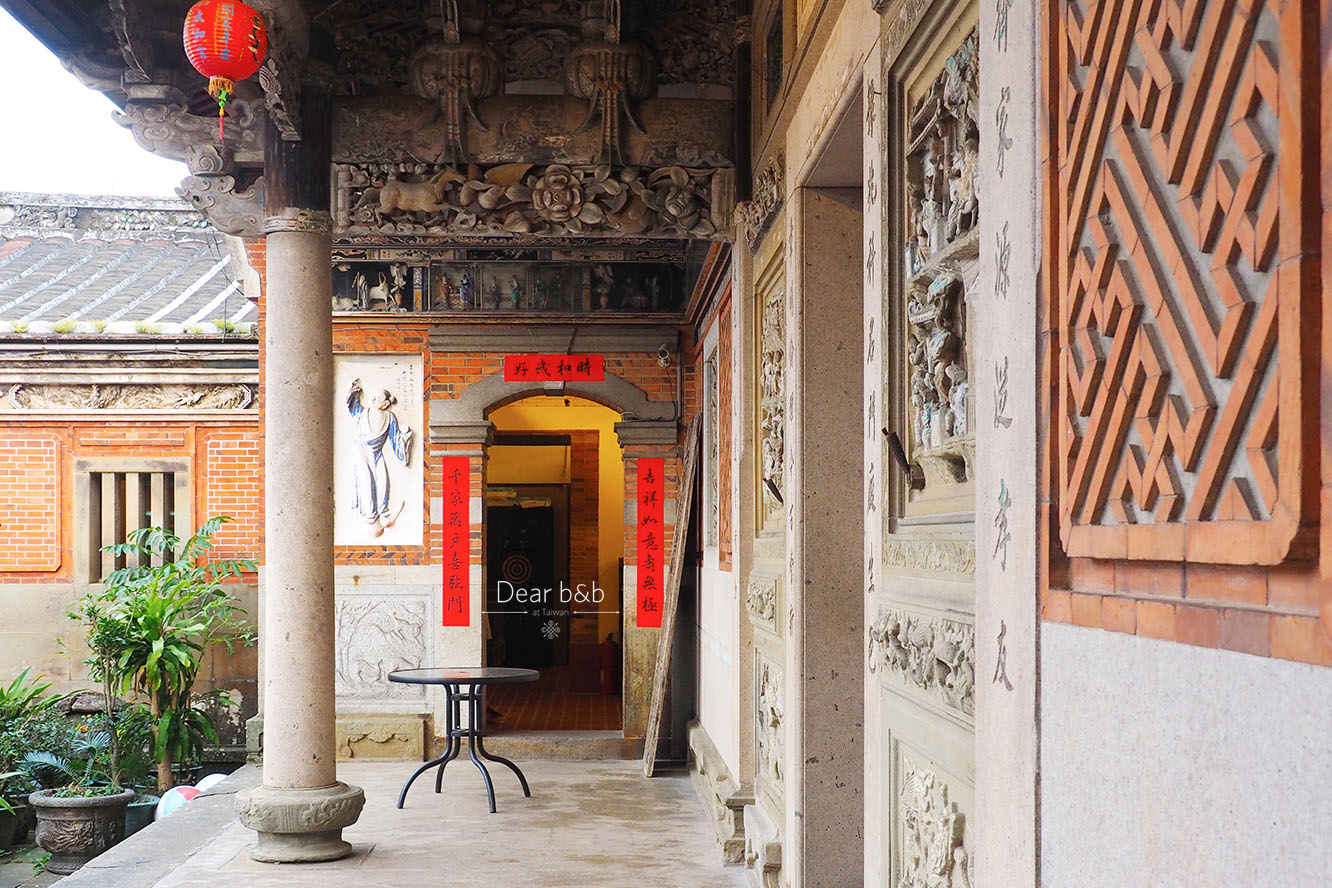
Inside the old hall, bedfellows with passing time
In olden days, this was the private academy of the Lo family children. Now, in the wing of this traditional residence, travelers come to experience a century of passing time. The chair of the imperial tutor is arranged neatly in the main hall near the incense altar where the gods were worshiped. A horizontal board on the wall, an ornate lamp, as well as a large color drawing of the map of Guanxi reflect the enduring sentiment of the family’s forebearers for the area’s eight famous scenic spots, as sung in the classical poem. Passing under the eves along the red brick corridor and through a western-style arched doorway, you find a functioning old-fashioned kitchen, as well as a hall housing many family portraits. Everything gathered under this roof speaks of the passing of time and of distant origins.
Sitting in the courtyard at night, chatting with other newly acquainted travelers over a hot pot of tea and breathing the refreshing countryside air, you look up at the peaceful, starry sky. In the deep of night, you return to the double room in the side building and find it smelling of solid wood, or you recline on the tatami mats in the four-person room. In this place, you return to a simpler era and become bedfellows with quieter, sweeter times.
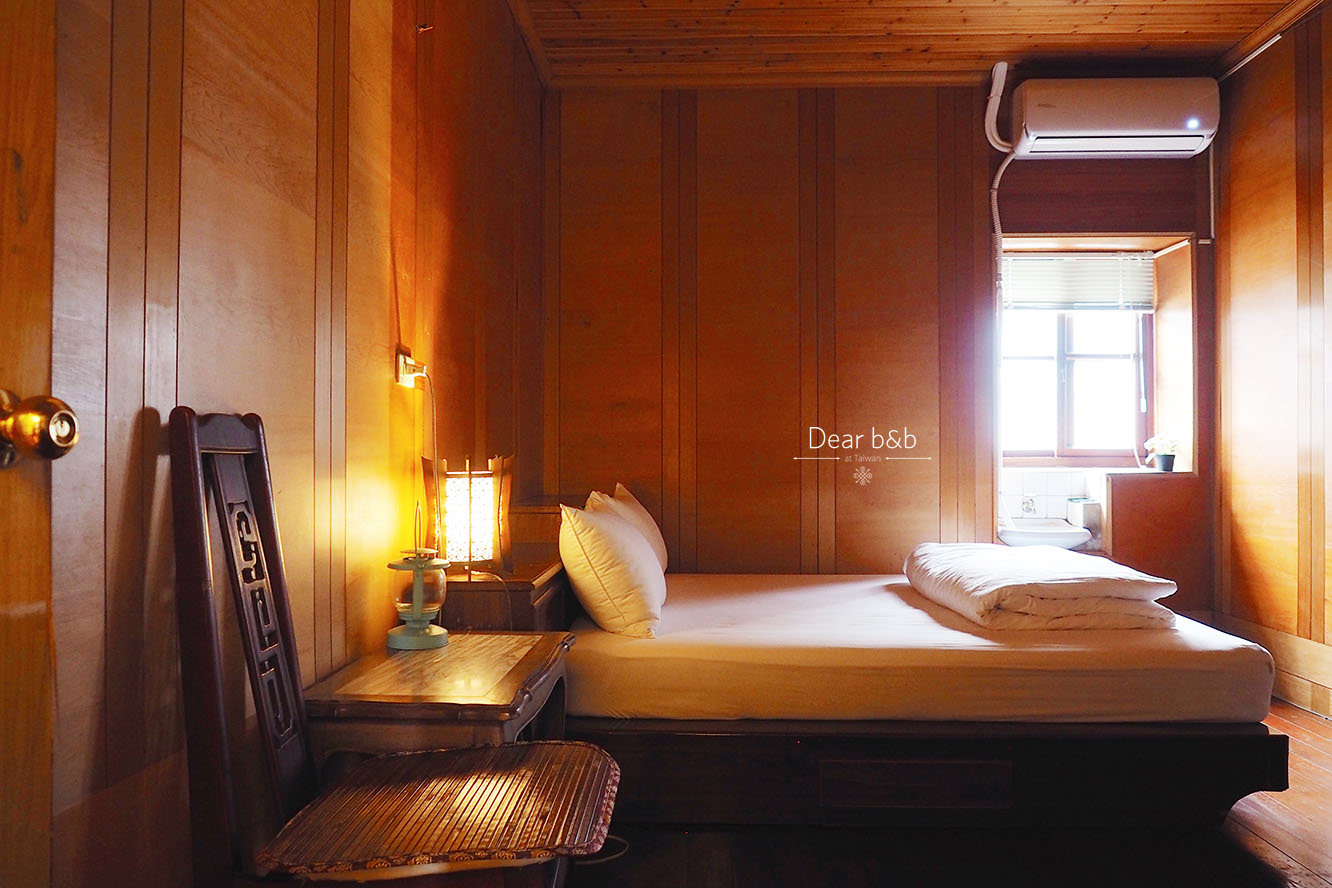
Stroll through the scenic settlement; walking in the moonlight near the southern river
The following morning, you awake with the sunshine and enjoy the traditional Lo House traveler’s breakfast which, in home-cooking style, warms both your belly and your heart. Then, beginning from Lo House, you follow the walking map down streets both winding and straight between fields and homesteads that converge in irregular patterns. When you arrive at the little town of Guanxi, you might try your hand at dyeing fabric in the indigo dyeing workshop. Or you may search for treasures in a second-hand bookshop cum coffeeshop. Whichever way you wander, you stroll into the simple, leisurely life of this small settlement.
In the daytime, you stay near the Nanshan hills, looking out along the path leading south through green fields. Overly-hurried times of yore have transformed into this leisurely midday experience. As night falls, you walk out in the cool air under the moonlight. In this hundred year-old residence of literary repute, you listen attentively to the discourse between the Earth and time itself.
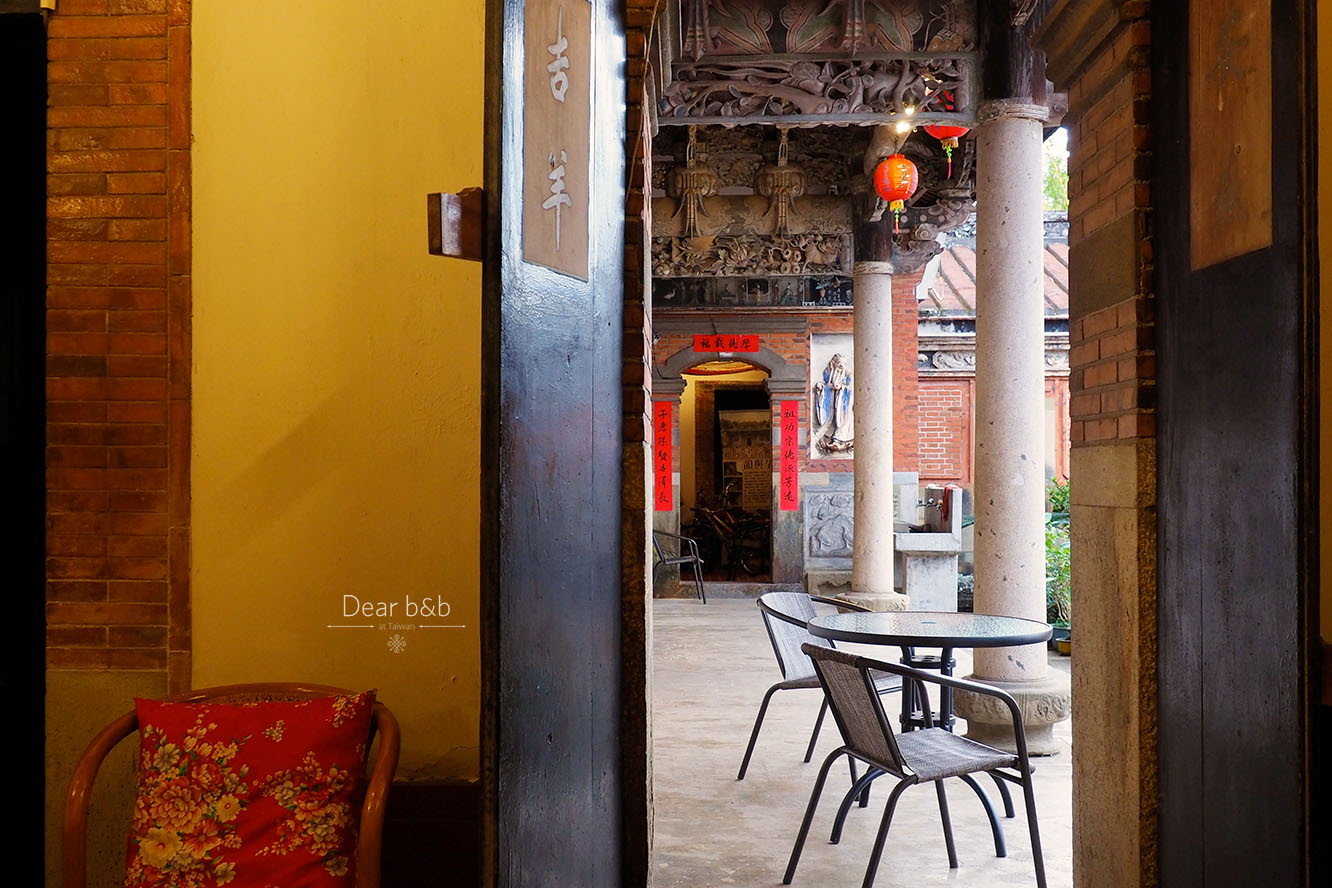
Meet the moving story of the host.
With the sunlight slanting in across the front courtyard of Lo House, the solemn-looking, glasses-wearing host Mr. Lo calls out an enthusiastic greeting. Though he just returned from teaching at the elementary school, he still gives a spirited introduction to the main hall of Lo House, even popping the occasional quiz regarding the meaning of the carved beams and painted ridgepoles. When asked why he came back to Lo House, he fetched some refreshments before inviting us to sit with him under the eaves to hear the tale.
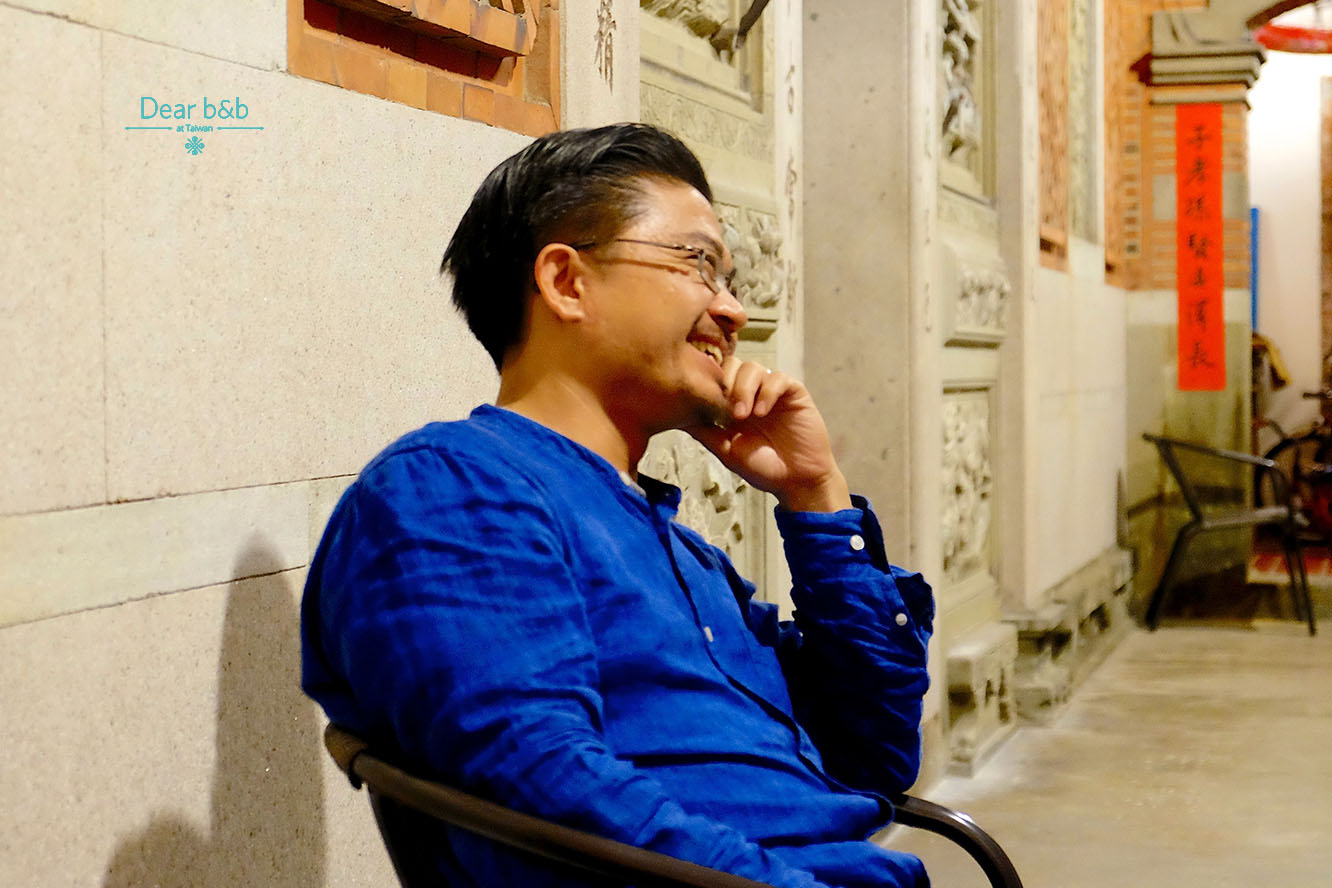
A hundred year-old home: the biggest concern
Speaking of his family history, Mr. Lo mentions how during the reign of the Qianlong Emperor in the Qing dynasty, his family moved to the Guanxi area, creating the Lo family settlement. A hundred years ago, Taiwan was in the early days of Japanese colonization, and many buildings were burned down. At the time, the Lo family began the process of rebuilding the property, with the addition of a Lo clan ancestral worship hall as well as other new structures. The construction took 12 years to complete. In keeping with the Hakka people’s propensity for scholarly pursuits, the new structure constructed alongside the original building was to become the Lo House Academy. It served as a private study hall where learned family members taught the younger generation, as well as living quarters for relatives. Furthermore, it is the place Mr. Lo has returned to for his vacations ever since he was small.
“I used to come back during summer vacations and play with my cousins in this courtyard!” Mr. Lo says with a laugh. He moved to Taipei with his parents at a young age, where he established a good life and a prosperous career. Yet when those of his father’s generation became too old to take care of the Lo House property themselves, and the rest of his peers had moved away and were unable to help with maintenance even if they wanted to, Mr. Lo couldn’t stop thinking about the old building. “There are certain things that you can put off for now, but one day you’ll surely have to face them!” It was this persistent concern that drew him back to his childhood home in Guanxi.
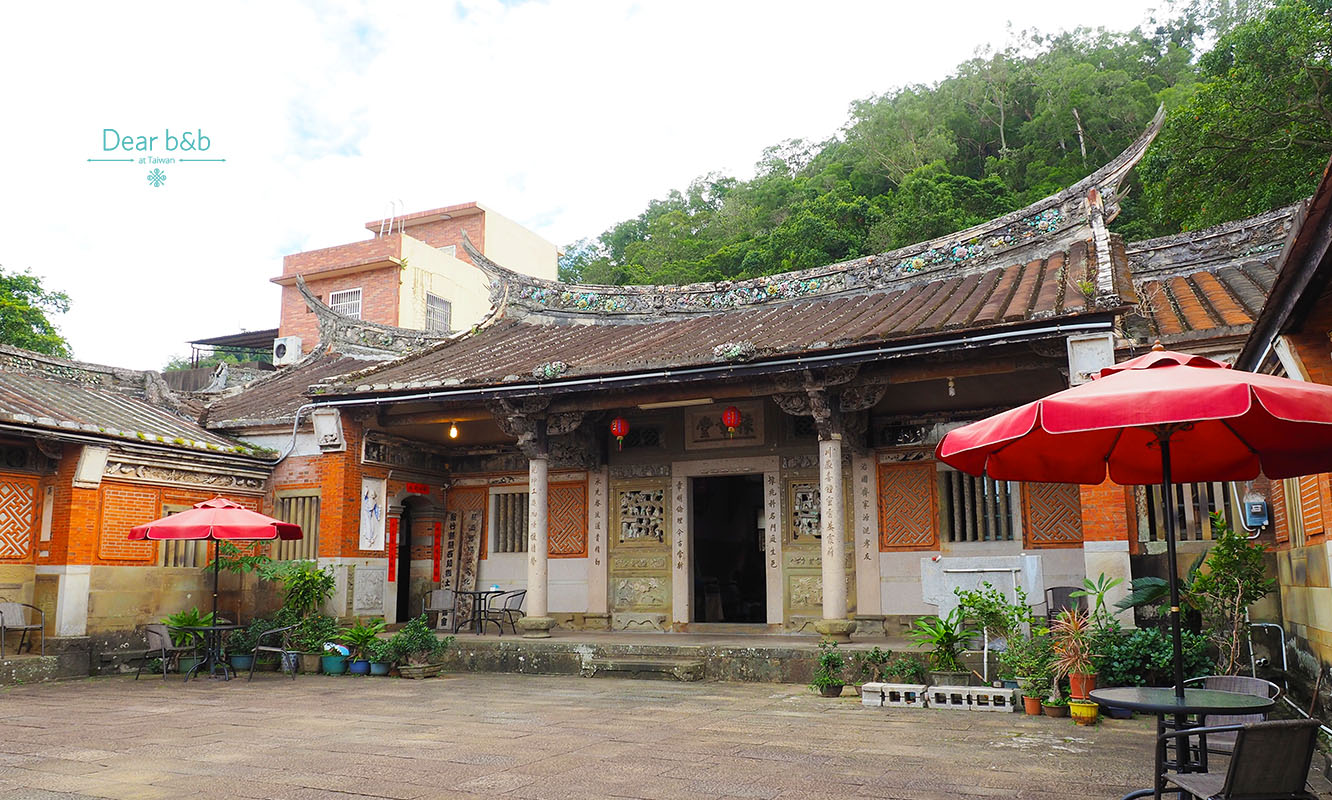
“You’re never totally prepared to take the stage.”
“There are many times in life when you can’t be totally prepared to take the stage.” Mr. Lo often down plays his situation, yet this is not because he is particularly capable, but rather because he is more courageous than most in facing up to things. Once his mind is made up, he gets down to work. Although the older generation believed that their descendants ought to leave this place, that it was necessary to leave Taiwan in order to grow, Mr. Lo believed otherwise. He has become even more certain that the rich cultural terrain of Taiwan is the most valuable property of all. “As long as you know what you want, then you can find a way to grow in such a place as this.”
Since taking over the management of Lo House, Mr. Lo not only maintains the space, he also hopes to spur the settlement into further development. Connecting the people of the town together, he established Lo House as the base of operations for the Niou Lan River Theatre Group, injecting the community with new life one step at a time by developing local activities and culture. He was also proactive in communicating with his family and applied for government conservation and restoration of the historical Lo House buildings so as to replace any rotten pillars and posts. Not only did he open a guest house, he also provided ever more people with the opportunity to walk through a rare, hundred year-old Hakkanese courtyard home, to fall in love with the Guanxi settlement and all of the fine culture and memories retained along the old street.
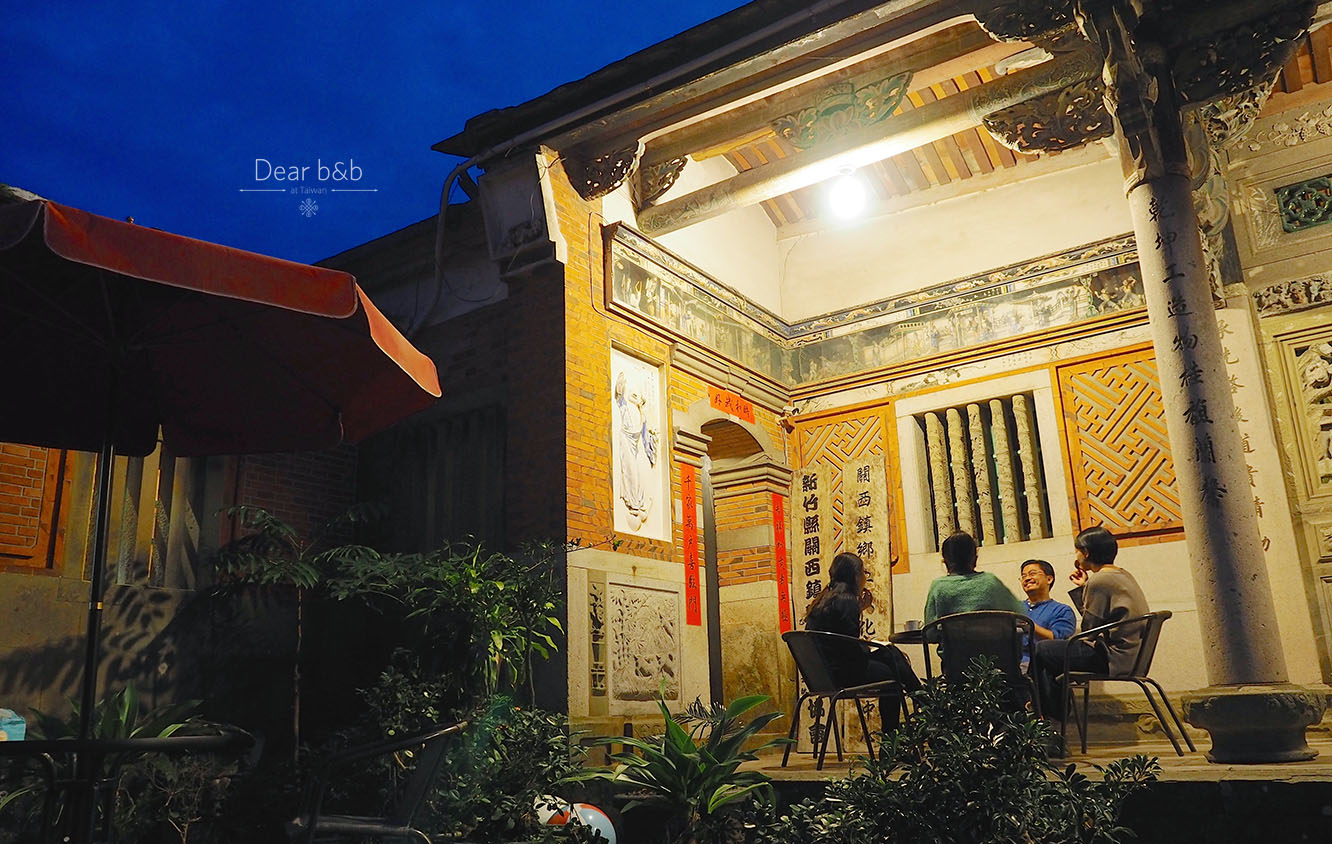
Follow your heart to find your own heaven
“In fact, this work doesn’t depend on my being here, any appropriate management professional would do.” In order to focus on the management of Lo House, Mr. Lo quit his job in Taipei and now teaches English at a nearby elementary school, finding time every few weeks to visit family in Taipei. Still, he remains humble. Mr. Lo is grateful for the support of his wife who also loves culture and heritage buildings, and understands why he cannot help but be concerned about the future of Lo House. Mr. Lo looks forward to enriching his hometown. Yet most importantly, he hopes to bring Lo House and his family story to an ever broader audience, “Lo House isn’t just a guest house, guests can even set up tents and stargaze, or set up tables and listen to local masters of roadside banquet cuisine talk about their recipes.” This scholarly family residence which once stood empty for many years is now full of the laughter of travelers as new stories are created daily and new possibilities constantly unfold.
“Everyone has their destiny,” Mr. Lo says with a graceful expression. Only you know how to listen attentively to the voice in your heart, to find your destiny. “In this way, you will find your own heaven.” Mr. Lo’s eyes shine with the certainty of lanterns burning in a dark night, drawing you out of your hesitation and leading you forward. With a smile, Mr. Lo reveals that he actually quite enjoys the tranquil atmosphere of the cemetery. When he feels afraid and helpless, he always goes to the cemetery to clear his head and contemplate. Teasing himself over this peculiar behaviour, he says, “You can have your own method. Some people meditate. Who knows for sure, some people might only feel the same self-understanding while window-shopping!”
There is a chill in the night air as, listening to Mr. Lo’s self-assured stories, we look up from under the eaves at the starry sky above. Feeling as if we’ve just attended a remarkable life lesson, a sense of passion and power fills our hearts.
